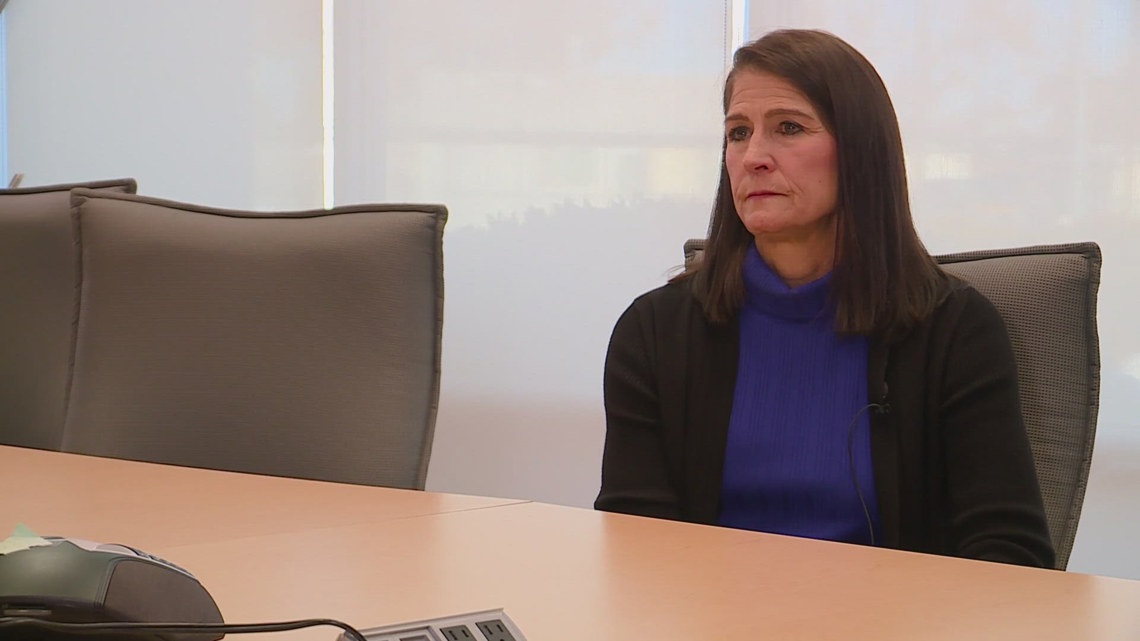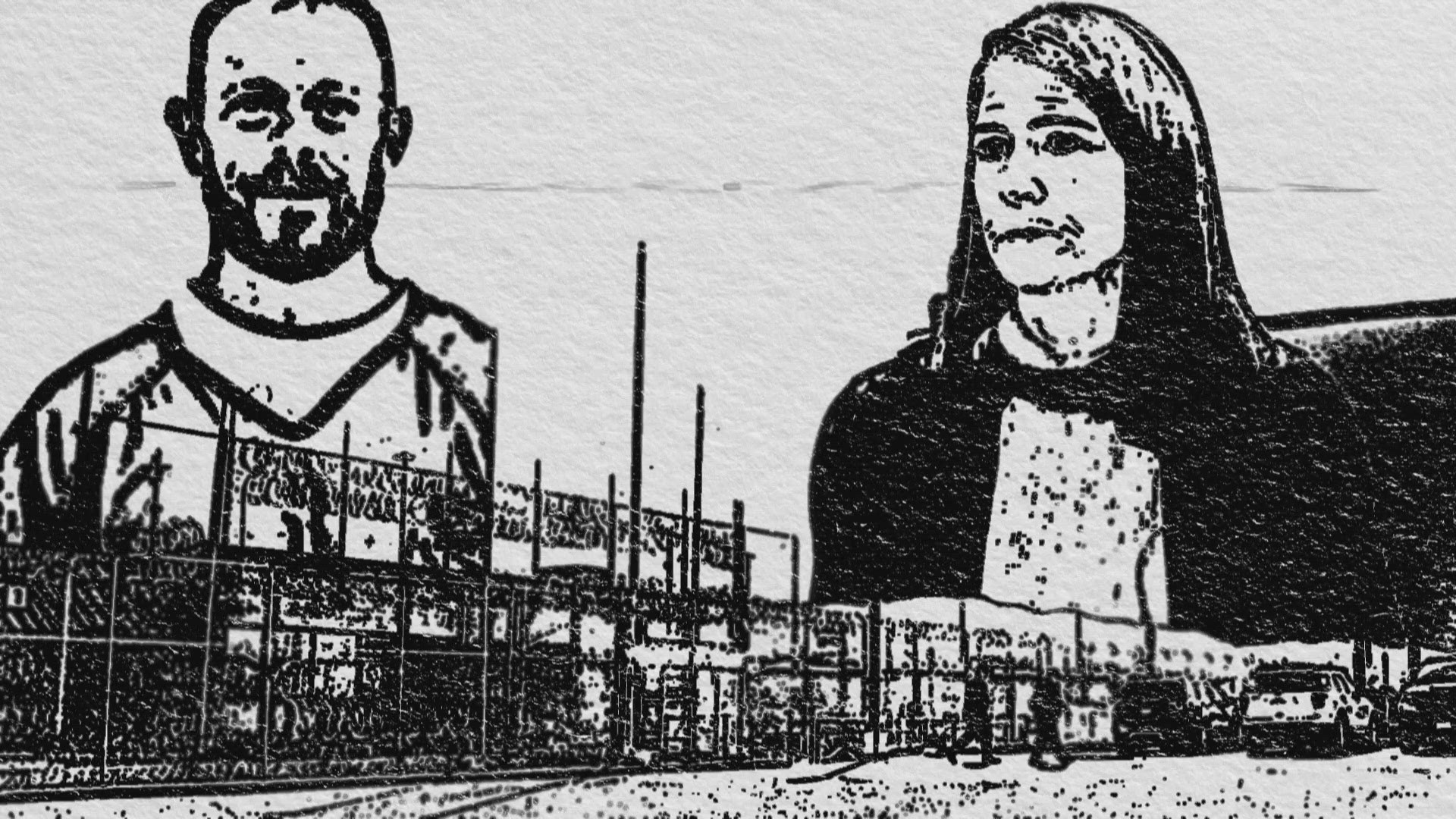BOULDER, Colo. — A man in prison on a life sentence said he was convicted of a murder he didn't commit.
Michael Clark and his attorney believe the DNA analysis used against him in a 2012 trial in Boulder is flawed. They had questions about the evidence years ago, and now the DNA analyst in Clark's case is under criminal investigation for manipulating and deleting data in hundreds of other cases.
Yvonne “Missy” Woods was considered the “gold standard” at the Colorado Bureau of Investigation (CBI). She mishandled evidence for years, according to an internal investigation launched in late 2023, despite warning signs. CBI now knows Woods’ misconduct is impacting more than 650 cases.
In a statement issued in June, CBI said Woods concealed her activities from the technical review process. The agency said it’s reviewing its processes and procedures to prevent similar manipulation from occurring in the future.
According to the Boulder District Attorney's Office, CBI told them they reviewed the work done by Woods (as was done with all cases handled by Woods) related to Clark’s case. After this review, the DA's Office said CBI determined there were no issues with her work or analysis.
At the same time, the Colorado Court of Appeals recently ruled Clark can get a hearing to try to reverse his conviction based on his trial counsel not consulting with a DNA expert in 2012.
Marty Grisham was shot and killed at his Boulder apartment in 1994. The case went unsolved for years until prosecutors charged Clark in 2012.
The case was largely based on circumstantial evidence. Boulder Police had said Clark, who at the time was friends with Grisham's daughter, had forged checks he stole from the Grisham's apartment. In addition to this, prosecutors felt there were a number of circumstances that together helped them charge Clark with first-degree murder.
A jury found him guilty in 2012, and he was sentenced to life in prison without the possibility of parole.
"Frustrating, awful," said Clark on the phone inside the Fremont Correctional Facility. "This is obviously not a crime I committed."
Clark has been in prison for almost 12 years. He said he believes the fight for justice put the wrong person behind bars.
"There are three kids that need a father. A wife that needs a husband," he said. "Unfortunately, my defense was not up to par on that report."
He called an attorney to take a second look. Adam Frank, Clark's current attorney, reviewed the evidence years ago.
"That is where both shell casings and the Carmex container were found," he said as he went through photos of the crime scene.
That Carmex container – simple lip balm – became crucial for prosecutors, Frank said, because of DNA inside.
"The entire time, this DNA evidence was the only thing that tied him to the crime scene," Frank said.
The DNA evidence helped prosecutors charge Clark nearly two decades after the crime. Frank said it's why he decided to represent Clark years ago because he believed the DNA analysis of that Carmex tub was flawed.
"The only reason this case got charged in 2012 was Missy Woods' false DNA testimony," he said.


Woods was the star witness in Clark's murder trial. Her analysis at the CBI helped police make an arrest. Now the scientist who helped officers is facing her own criminal investigation for deleting and manipulating data in hundreds of cases.
"It was validation that everything we had been saying and screaming from the rooftops since 2018 and 2019 has been true," Frank said.
They had doubts about the DNA years before the current investigation into Woods. It's why they reached out to Phil Danielson, a forensic scientist at the University of Denver, to get a second opinion.
"And you know when I got his report, it was a jaw on the floor," Frank said. "Oh my God. Everything Mike has been saying is correct."
In 2019, Danielson reviewed Woods' analysis of the Carmex tub and compared it to her testimony during Clark's trial. 9NEWS asked for his opinion on whether her testimony was misleading.
"Whenever you give part of a story, there is potential to mislead the jury," Danielson said. "I think we have a duty to tell the whole truth, and in this case, it appears analyst Woods told half of the truth."
He said Woods testified the DNA evidence was a match but left out information that could have helped Clark.
"What she didn't say in this part is the one point of comparison where he potentially did not match," said Danielson as he looked at Woods' work.
Critically, he said a point on the DNA profile could have been someone else. Danielson said he believes Woods failed to tell the jury about this other possible conclusion.
"We are supposed to look at the evidence and consider all possibilities, and she didn't do that," he said.
Clark has been waiting in prison for 12 years, hoping for a new trial. An investigation looking into Woods' credibility gives him hope.
"Who knows how long it is going to take for the truth and for justice for lack of a better term to prevail," he said.
One of the prosecutors in Clark’s case, Ryan Brackley, is now Woods’ current attorney.

